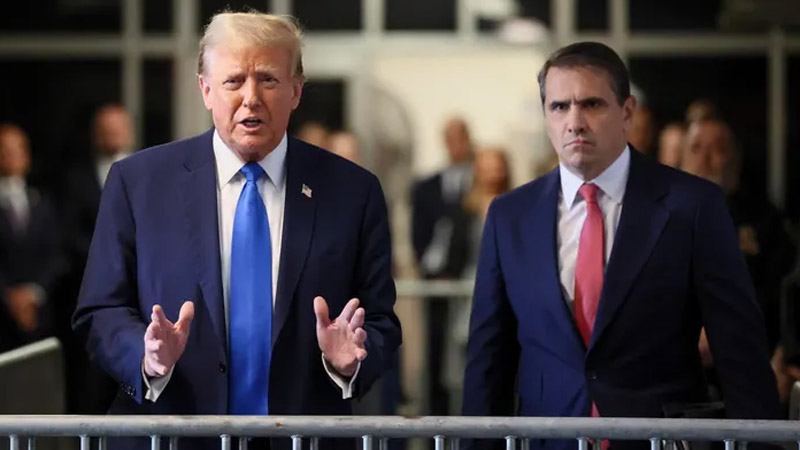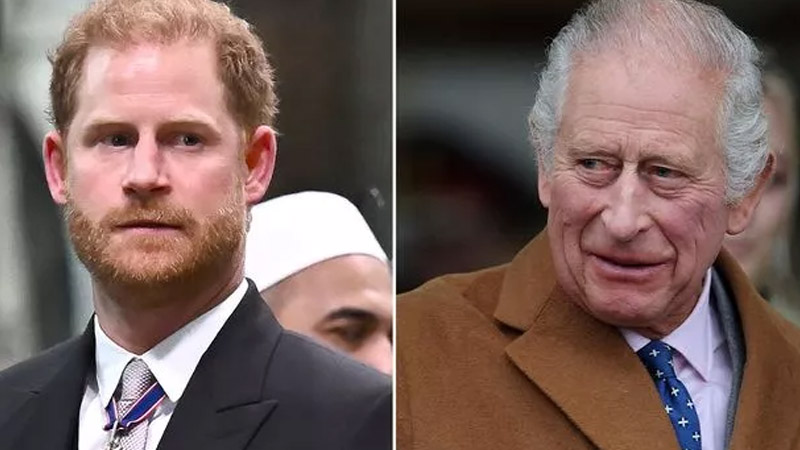Concerns Rise Over Donald Trump’s Endurance Through Manhattan Trial

Photo: Manuel Balce Centa/AP
One week into the Manhattan hush money trial involving Donald Trump, there is increasing concern among his aides about the former president’s ability to cope with the extended period he may be required to spend in court. The trial, which could last up to six weeks, is testing Trump’s endurance in ways that are visibly taking a toll on him.
A report by Maggie Haberman for the New York Times details the transformation of Trump’s demeanor over the initial days of the trial. Starting the week with his usual air of confidence, Trump’s appearance and energy notably declined after enduring four days dedicated to jury selection. Described as looking haggard and rumpled, with an unsteady gait and a vacant expression, the strain of the trial is becoming evident.
The primary concern for those close to Trump is how he will handle the daily grind of the courtroom, particularly the parts of the process that are monotonous by nature, such as listening to prolonged testimonies and legal arguments. The trial format does not allow for the immediate and direct responses Trump is accustomed to. Traditionally, Trump has countered criticism and attacks on his character swiftly via social media or impromptu press conferences.
“People close to him are anxious about how he will handle having so little to do as he sits there for weeks on end, with only a handful of days of testimony expected to be significant. It has been decades since he has had to spend so much time in the immediate vicinity of anyone who is not part of his family, his staff, or his throng of admirers,” Haberman explained before adding that his advisers are brainstorming getting him out and around more.
“Some advisers are conscious of Mr. Trump appearing diminished, and they are pressing for more — and larger — events around the New York area,” she wrote before explaining, “The highly telegraphed plan was for Mr. Trump to behave as a candidate in spite of the trial, using the entire event as a set piece in his claims of a weaponized judicial system.”
The constraints of the courtroom, however, prevent him from employing these usual tactics to defend himself or redirect the narrative, which is likely contributing to his visible discomfort. The situation presents a stark contrast to Trump’s previous experiences where he had the freedom to react and communicate without restraint. The inability to respond in real-time to the criticisms being leveled against him in court is an unusual and challenging scenario for him. It requires a level of passivity and restraint that he has rarely shown in the past.
Moreover, the requirement to sit through what might seem like tedious proceedings poses another challenge for Trump. The report speculates that it is difficult to recall another time when Trump was forced to endure extended periods of inactivity and boredom, conditions that are far removed from the fast-paced and reactive nature of his former roles, both as President and as a media personality.
These observations highlight a significant aspect of the trial that goes beyond the legal issues at stake. They underscore the personal challenges Trump faces as he navigates a public and highly scrutinized legal battle without the usual tools and freedoms that have characterized his approach to conflict and criticism. As the trial progresses, the impact of these constraints on Trump’s demeanor and well-being continues to be a focal point for observers and aides alike, adding a layer of human drama to the unfolding legal proceedings.


